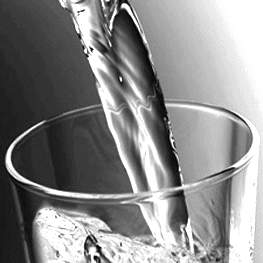Late alarm for tap contamination
 A NSW council has rushed to apologise after taking two years to warn residents of water contamination.
A NSW council has rushed to apologise after taking two years to warn residents of water contamination.
Tamworth Regional Council has only just informed residents of several towns that elevated uranium levels were found in drinking water supplies as far back as 2014.
The uranium is believed to be naturally-occurring.
Hunter New England Health has reviewed new test results from the water supplies of Moonbi and Kootingal, finding that the contamination levels were almost double the recommended safe limit in some bores, but saying the health implications are unclear.
Elevated levels of uranium have also turned up in the new backup drinking supply for Bendemeer, which was commissioned last year.
Bruce Logan, Tamworth Regional Council Director of Water and Waste, admits that alarm bells should have been sounded sooner.
“Are we negligent in relation to whether we should have taken appropriate action earlier? Well I think the answer to that is yes,” Mr Logan told the ABC.
“Staff are always held accountable so on this occasion necessary measures have been made within staffing and within our processes so staff are fully aware of the failure and the unacceptable nature of that failure and how we can make sure that won't happen again in the future.”
Mr Logan said residents deserved better.
“I'm very sorry about that. It's not good enough and it's not the level of service Council should be giving.
“People should be able to be very, very confident that the water they are drinking meets the necessary compliance levels as indicated in the Australian Water Drinking Guidelines,” he said.
Hunter New England Health's (HNEH) Public Health Physician Dr David Durrheim said health implications were unclear.
“Some of these people will have been using drinking water which may or may not have exceeded guideline levels for a long period of time,” Dr Durrheim said
“But again, to stress even those levels appear higher than the drinking water guidelines, they are not at the level we expect acute, severe health defects.
“The levels detected are yes above the drinking water guidelines. Those are very conservative guideline levels and really reflect the experience where concern is for a person exposed for their life time at those levels,” Dr Durrheim said.
The NSW Health Department is forming an expert panel to assess the situation.







 Print
Print